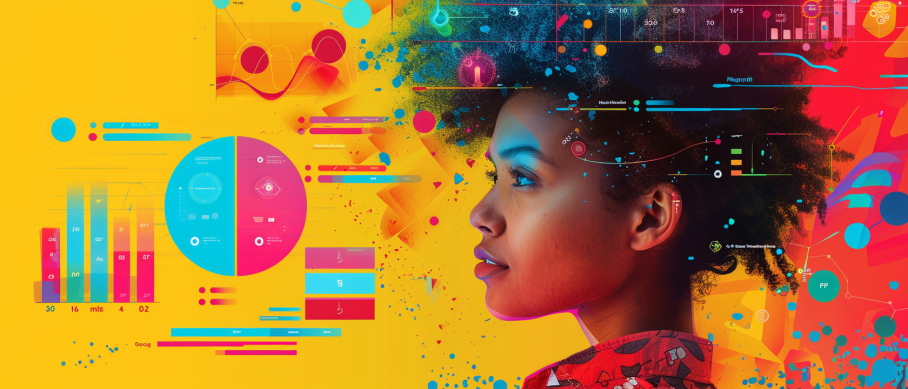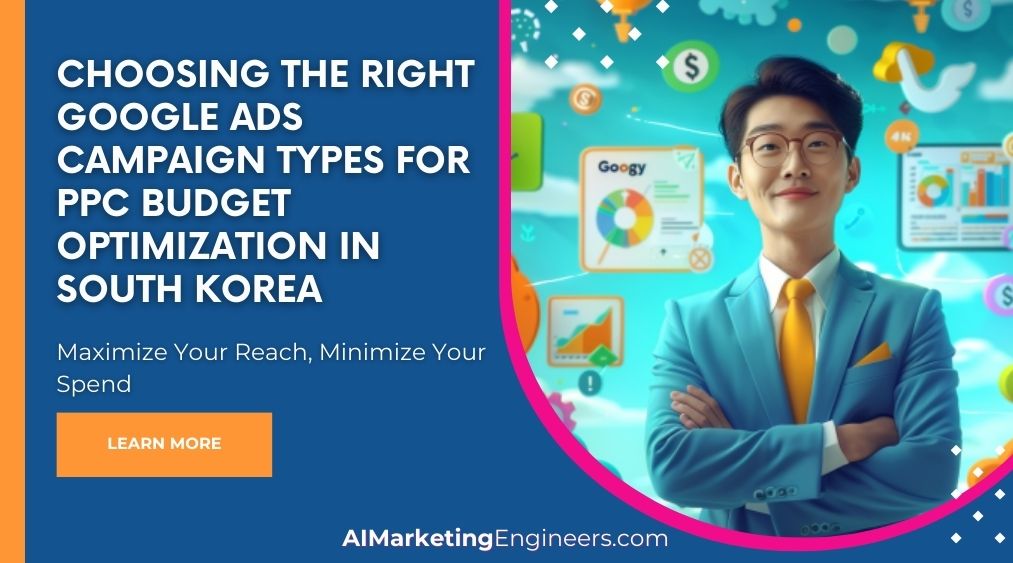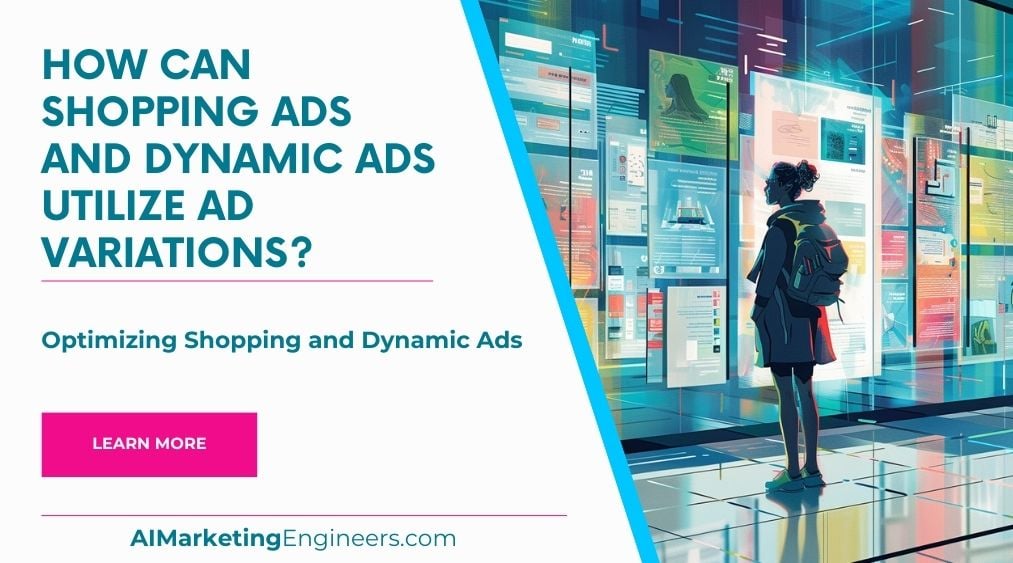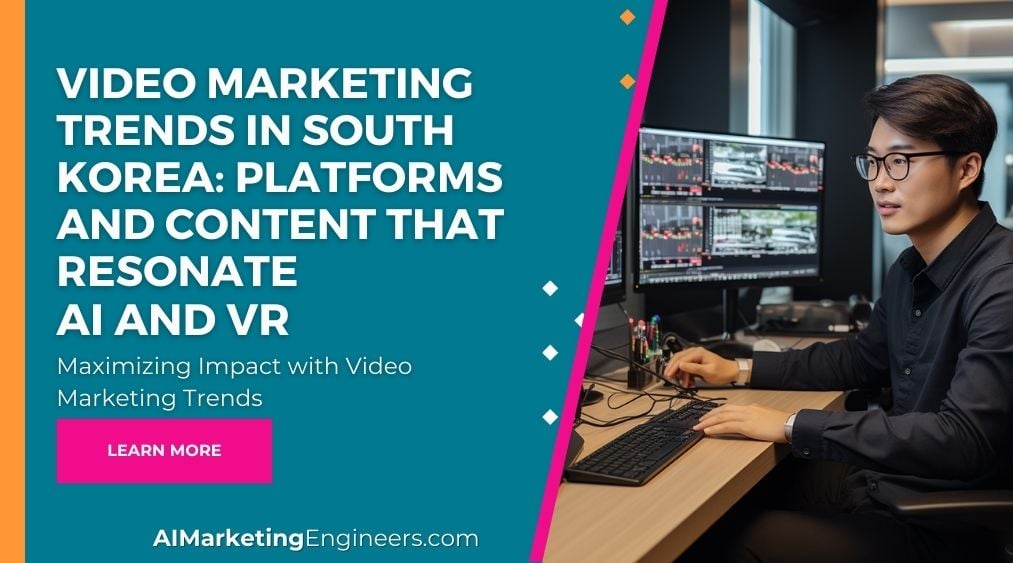Key Takeaways
✅ Performance Max Campaigns: These are the frontrunners for advertisers with crystal-clear online goals, especially for online stores. They're smart, using advanced algorithms to mix and match content for optimal impact across an impressive range of networks from search pages to YouTube. Reports show that using automated bidding strategies like Performance Max can boost conversions by an average of 20%.
✅ Display Campaigns: Known for their effectiveness in spreading brand awareness, these are the go-to for high-impact visuals and grabbing eyeballs across the web. By focusing on places and people instead of just keywords, they open doors to audiences your search ads might miss—and they're proven to complement search efforts, with a potential increase in brand searches by up to 80%.
✅ Search Campaigns: The stalwarts of Google Ads, these drive immediate visibility when people go hunting online for what you offer. Quick to set up and a direct line to increased traffic and potential sales, they're an indispensable tool in your marketing arsenal. They're particularly powerful with reports stating that businesses make an average of $2 in revenue for every $1 spent on Google Ads.

Introduction
Ever wondered why some businesses seem to have a magical touch when it comes to online advertising? It’s no illusion – they’ve cracked the code on using Google Ads campaign types effectively. But what's the witchcraft behind their success? Here's a hard fact: Knowing the different Google Ads campaign types can make or break your PPC goals.
Step into the arena of Google Ads, where the combat for clicks is fierce and only the best strategies reign supreme. In this no-nonsense guide, we will unmask the contenders—Search, Display, Performance Max—and pit them against your advertising challenges. Will you bet on the tried-and-true or venture into new realms of algorithm-driven campaigns?
Prepare for eye-opening trends and fresh perspectives that could skyrocket your ROI and sharpen your competitive edge. Stick around for insights that promise to demystify the digital battleground and hand you the keys to unlock campaign success. Ready for the reveal?
Why Understanding Google Ads Campaign Types Matters
Imagine funneling money into online ads only to see modest returns or worse, none at all. That's the scenario many face without a firm grasp of Google Ads campaign types. With each type designed to achieve specific business goals, understanding the nuances between them can mean the difference between a flourishing campaign and one that flops. Moreover, with Google's habit of rolling out updates and new features, staying informed is not just beneficial, it's crucial. After all, would you embark on a journey without understanding the modes of transport available to you?
7 Google Ads Campaign Types: How and When to Use Them
Search Campaigns should be your go-to for capturing users with intent. Imagine someone actively searching for "best running shoes." A well-timed text ad here can turn search into sales. On the flip side, Display Campaigns work wonders for visual products and establishing brand presence, like a vibrant banner ad appearing on a popular blog. Moving to videos, Video Ad Campaigns leverage YouTube's massive audience to tell your story or showcase products. Meanwhile, Shopping Campaigns cater to retailers, offering a direct line to showcase their goods right within Google's search results.
When it's about apps, App Campaigns do the legwork by promoting your mobile app across platforms, so you don't have to be an app store guru to get downloads. Considering generating buzz or leads? Demand Generation Campaigns focus on stirring interest and bringing users to the door. And for those wanting to hand the reins over to AI, Performance Max Campaigns use machine learning to optimize your ads across search, display, and more, adapting in real-time to find your ideal audience.

Building a Successful PPC Strategy with Different Google Ads Campaign Types
Crafting a successful PPC strategy kicks off with robust keyword research. Knowing whether to use broad, phrase, or exact match types determines whom your ads reach and their relevance. But it's not just about the keywords; tuning your campaign settings plays a vital role. Get this right, and you're steering the ship towards better performance and ROI; get it wrong, and it's like setting sail without a map.
The Difference Between SEO and PPC
To understand the difference between SEO and PPC, one could compare it to the difference between planting an orchard and buying fruit from the store. SEO is the long game, cultivating organic traffic through savvy site optimization, while PPC offers instantaneous visibility at a price. Both have their place in a marketing strategy, but knowing when and how to use them is key.
Google Ads Campaign & Keyword Settings Affecting Your PPC Results
Your ads' visibility and success lie in the intricate dance between keyword match types and campaign settings. Broad match could capture a wider audience but risks irrelevance, while exact match promises precision at the expense of reach. Carefully manipulating these settings is akin to a maestro conducting an orchestra – one wrong move, and the symphony falls apart.
Types of Google Ads: Ad Formats, Campaign Type & Best Practices
Setting up a Google Ads campaign is not unlike preparing for a cross-country trip; having a clear goal is imperative. Whether chasing sales, leads, or web traffic, defining your objectives is step one. Next is selecting the mode of travel – or campaign type – from Search to Video to Performance Max. Ensuring your luggage – or ad formats – is suitable for the journey is just as important. Text ads for searchers, responsive ads for browsers, and product listings for shoppers keep ads aligned with goals.

How Google Ads Keywords Affect Your PPC Campaigns
Imagine keywords as the signposts guiding potential customers to your ads. Conducting keyword research is the groundwork, enabling you to discover what your audience is seeking. With a refined keyword strategy, each ad group becomes a beacon, shining a light on the paths most likely to result in clicks and conversions. Regularly optimizing these keywords is the ongoing maintenance required to ensure signposts are pointing in the right direction.
Choosing the Right Campaign Type for Your Advertising Needs
Deciding on the right campaign type often hinges on the outcome you desire. Performance Max Campaigns offer a set-it-and-forget-it approach for those looking to cut across multiple channels. If specificity is the game, then Search Campaigns provide a sniper's approach to hitting targets. Display Campaigns are the billboards of the internet, ideal for casting a wide net, while Video Ad Campaigns serve as engaging commercials for the YouTube generation. For e-commerce, Shopping Campaigns put your products under a spotlight, and App Campaigns handle the heavy lifting in the promotion of your applications. Lastly, for lead chasers, Demand Generation Campaigns are the bread and butter of interest piquing.
AI Marketing Engineers Recommendation
Recommendation 1: Utilize Smart Bidding Strategies Tailored to Your Specific Google Ads Campaign Type: Smart Bidding entails the use of machine learning to optimize for conversions in each auction, a feature known as "auction-time bidding." This can dramatically improve the performance of your campaigns, especially when precise goals are set. For instance:
- If you're running a Search Campaign, make use of Target CPA (Cost Per Acquisition) to optimize for conversions while controlling costs.
- In a Display Campaign, consider using Maximize Conversions to automatically set bids at auction-time with the goal of getting you as many conversions as possible within your budget.
- For Shopping Campaigns, Target ROAS (Return On Ad Spend) can be instrumental to ensure you're hitting your profitability goals.
Recent data indicates that advertisers who switch to Google Ads Smart Bidding see an average of 20% increase in conversions for the same cost.

Recommendation 2: Align Your Google Ads Campaign Type with Your Sales Funnel: Understanding where your audience is in the sales funnel is key to selecting the right Google Ads campaign type:
- Awareness Phase: Display and Video Campaigns work effectively here. Grab attention with engaging visuals and informative content that's not necessarily pushing for a direct sale.
- Consideration Phase: Search Campaigns with a focus on specific keywords related to your product or service can capture the interest of potential customers who are actively seeking information.
- Decision Phase: Here, Shopping Campaigns and Remarketing can be particularly powerful. Showcase your products directly in search results and remind those who've engaged with your site to make the purchase.
Businesses often see an increase of 10-15% in click-through rates when implementing a full-funnel approach, targeting customers throughout all stages of their purchase journey.
Recommendation 3: Leverage Responsive Search Ads to Test and Optimize Ad Copy at Scale: Responsive Search Ads (RSAs) allow you to enter multiple headlines and descriptions, which Google then tests and optimizes to show the most effective combinations. RSAs save time by automating the testing process and can yield high-performing ad copy without manual A/B testing. With more space for your message, RSAs can improve ad performance by tailoring your ad content to customers' specific queries. Advertisers that switch to Responsive Search Ads in their Google Ads campaigns have reported an average of 5-15% increase in clicks and conversions compared to their standard search ads.
Relevant Links
- Mastering Chinese Digital Marketing Through WeChat
- Leveraging the Power of Douyin and Kuaishou
- Platforms and Content That Resonate with South Korean Audiences
- E-commerce SEO: Breaking into South Korea's Online Retail Market
- Adapt Your Strategy to Chinese Consumer Trends of 2024
Conclusion
Navigating the diverse terrain of Google Ads Campaign Types is akin to setting sail on the vast digital ocean with a map that keeps updating. Knowing your course is essential, which means understanding the specific purpose of each campaign type is a compass for achievement. It's not just about placing ads; it's about engaging the right people at the time they're most ready to listen. Whether you're crafting Search Campaigns that bring your text ads to the forefront of Google searches or launching Display Campaigns that dazzle with visual appeal, each variation has its compass point, guiding you to your PPC goals.

Picture the potential when Video Ad Campaigns take your message and broadcast it through the powerful platform of YouTube, directly to viewers who are already interested in what you've got to say. And let's not forget the precision of Shopping Campaigns, plucking your products and placing them right where shoppers can't miss them. With advancement in AI, Performance Max Campaigns have thrown open the doors to a new frontier, using smart technology to optimize strategies across channels, making sure your investments work not just hard, but smart.
But essentially, what anchors these campaigns to success? A deep dive into Keyword Research and Strategy, coupled with fine-tuning your ad's sails through Campaign Settings and Optimization, ensures you're not just drifting in the digital sea. And while you might confuse the serene but slow-moving current of SEO with the powered engine of PPC – remember, they both ride the waves differently to get viewers to your shores.
In this vast expanse, your mastery of the winds – the clicks, the views, the traffic – doesn't come from simply knowing the names of the currents. It stems from an understanding of how Campaign Settings and Keyword Match Types harness these forces to fill your sales. So, as you plot your next course, ask yourself: Are you prepared to set sail with the right campaign type for your Advertising Needs? Will your compass point you towards the treasured islands of conversions and clicks?
In the shifting sea of online marketing, staying up-to-date, strategic, and adaptable with your Google Ads approach is not just recommended, it's crucial for anyone seeking to make a splash and thrive. After all, aren't we all looking to chart the most profitable course in this digital adventure?

FAQs
Question 1: What are the different types of Google Ads campaigns?
Answer: There are several types of Google Ads campaigns:
- Search campaigns: These put text ads on search results, focusing on specific keywords.
- Display campaigns: Here, you see visual ads that show up on websites and apps, aiming at certain audiences.
- Video ad campaigns: These are the video ads popping up on YouTube and other platforms.
- Shopping campaigns: Think product ads that you find on Google Shopping.
- App campaigns: Ads that get the word out about mobile apps.
- Demand gen campaigns: These ads are all about targeting the right folks for lead generation.
- Performance Max campaigns: They're all about maximizing goals by optimizing across Google Ads channels.
- Smart campaigns: This type uses Google's AI to automatically target and optimize ads.
- Local campaigns: Aiming at local crowds to get them into physical stores or check out promotions.
Question 2: What is the difference between SEO and PPC?
Answer: SEO, or Search Engine Optimization, is about getting traffic without paying for each click. You do this by optimizing your website and hoping it climbs up the ranks on search engines. PPC, which stands for Pay-Per-Click, involves paying for your clicks directly, aiming to show up in searches through paid ads based on keywords.
Question 3: How do Performance Max campaigns work?
Answer: Performance Max campaigns focus on conversion goals and audience signals you've already figured out. The neat thing is, Google automatically generates ads for you across all its channels based on creative stuff you provide. Plus, Google's AI is constantly tweaking things in the background to get you the best conversion rates.
Question 4: What are the benefits of using Performance Max campaigns?
Answer: They're easy to set up and manage, plus Google's AI does a lot of the heavy lifting in optimizing ad performance. They’re designed to increase conversions and are pretty good at digging up new audience segments that'll likely be interested in what you're offering. Plus, you get some insightful reports on how your ads are doing.
Question 5: What are the different keyword match types in Google Ads?
Answer: Broad match gets your ads in front of folks with searches related to your keyword. Phrase match keeps it a bit tighter, showing your ads for searches that include what you’re bidding on or close variations. Exact match is strict – your ads only show up for the exact keyword or super close variations you’ve specified.
Question 6: How do ad formats vary across campaign types?
Answer: So, text ads are the name of the game in Search campaigns. Responsive ads flex between Search and Display. The Display campaigns also like to use image ads, while App campaigns are all about those app promotion ads. Video ads? They’re stars on Video campaigns. On the Shopping front, it’s the Shopping ads that take charge. And if people are searching, sometimes a call-only ad makes the leap to get them dialing.
Question 7: What are the benefits of using Google Ads?
Answer: Oh, the benefits? Where to start? How about a high ROI, with Google Ads raking in about 8 dollars for every 1 spent. It's a fast track to results, too, pulling in twice as many visitors as SEO tactics. And let's be honest, Google Ads has a rep for being consistently good at filling pockets.
Question 8: How do I choose the right campaign type for my business?
Answer: First off, have a sit-down with yourself and define your marketing goals. Are you after sales, leads, or brand awareness? Next, pick a campaign type that fits snugly with your goal. Lastly, get your head around the ad formats and choose ones that sync up with your campaign type and objectives.
Question 9: How do I optimize my GoogleAds campaigns for success?
Answer: Start with knocking out some serious keyword research to home in on the right crowd. Then, craft and tweak your ad copy to make it sing. Budgets can't be ignored, so manage those dollars wisely to see the best returns. And, keep an eagle eye on your campaigns – regularly checking up on them to keep them well-tuned and running smoothly.






